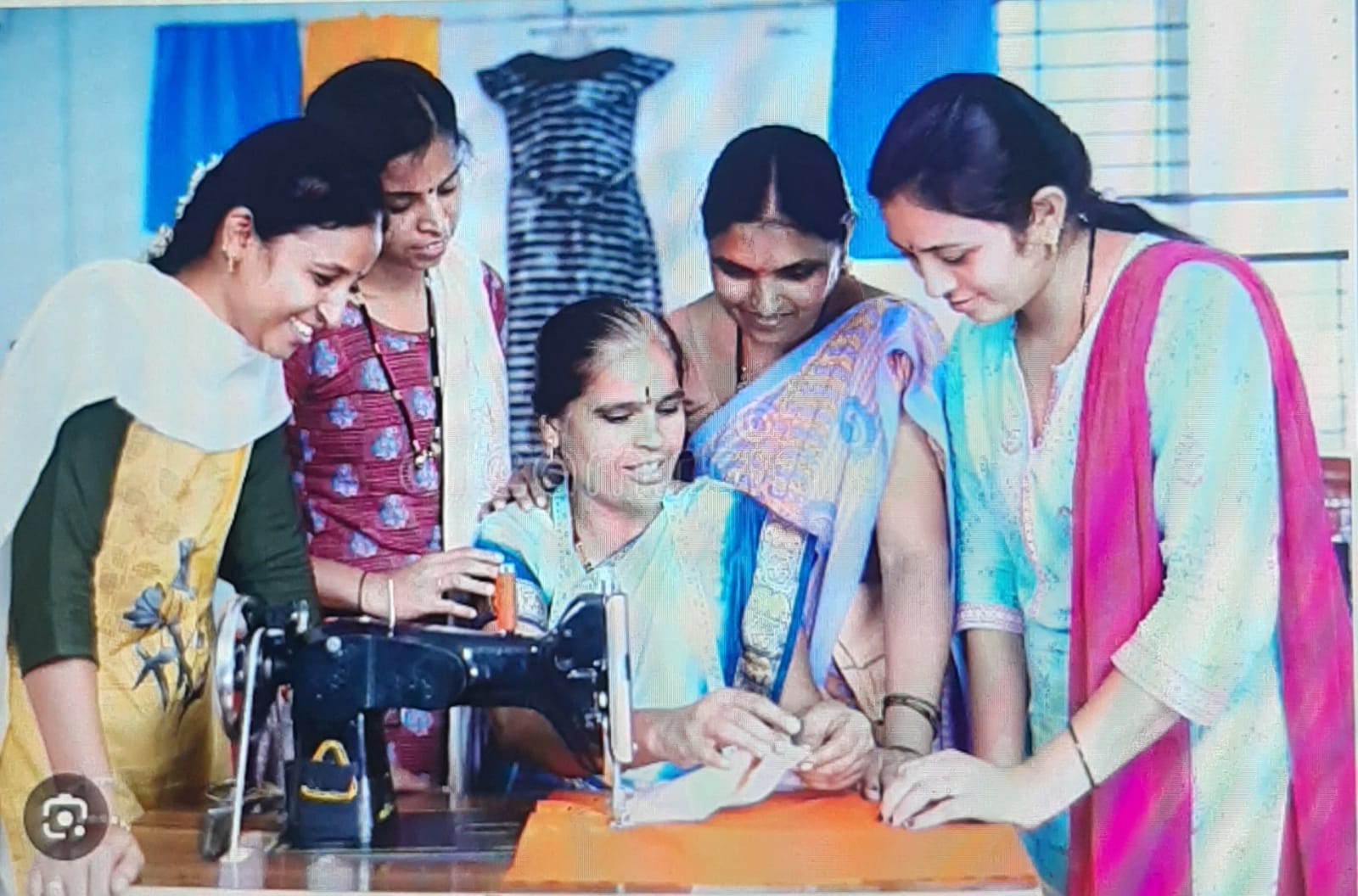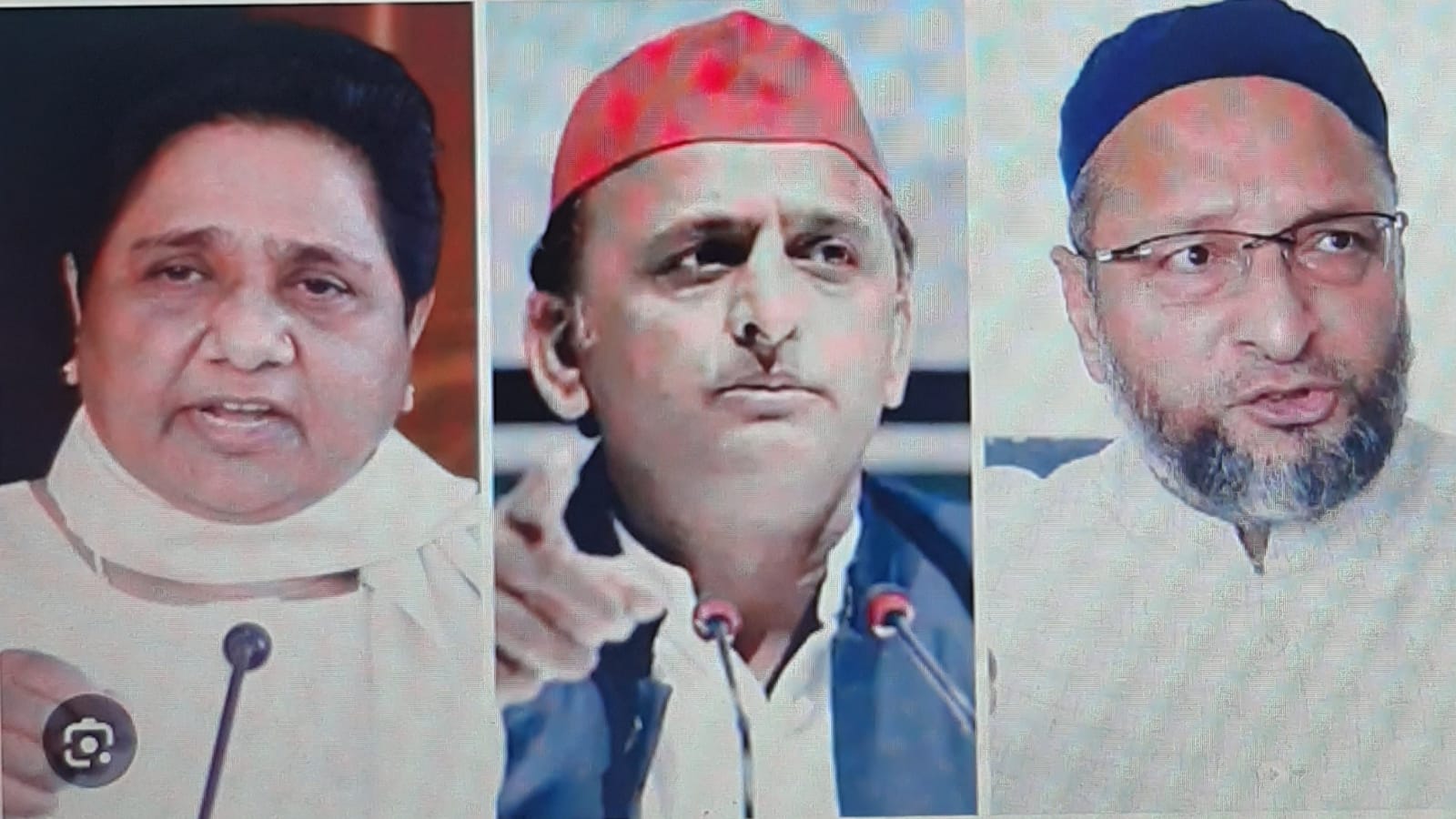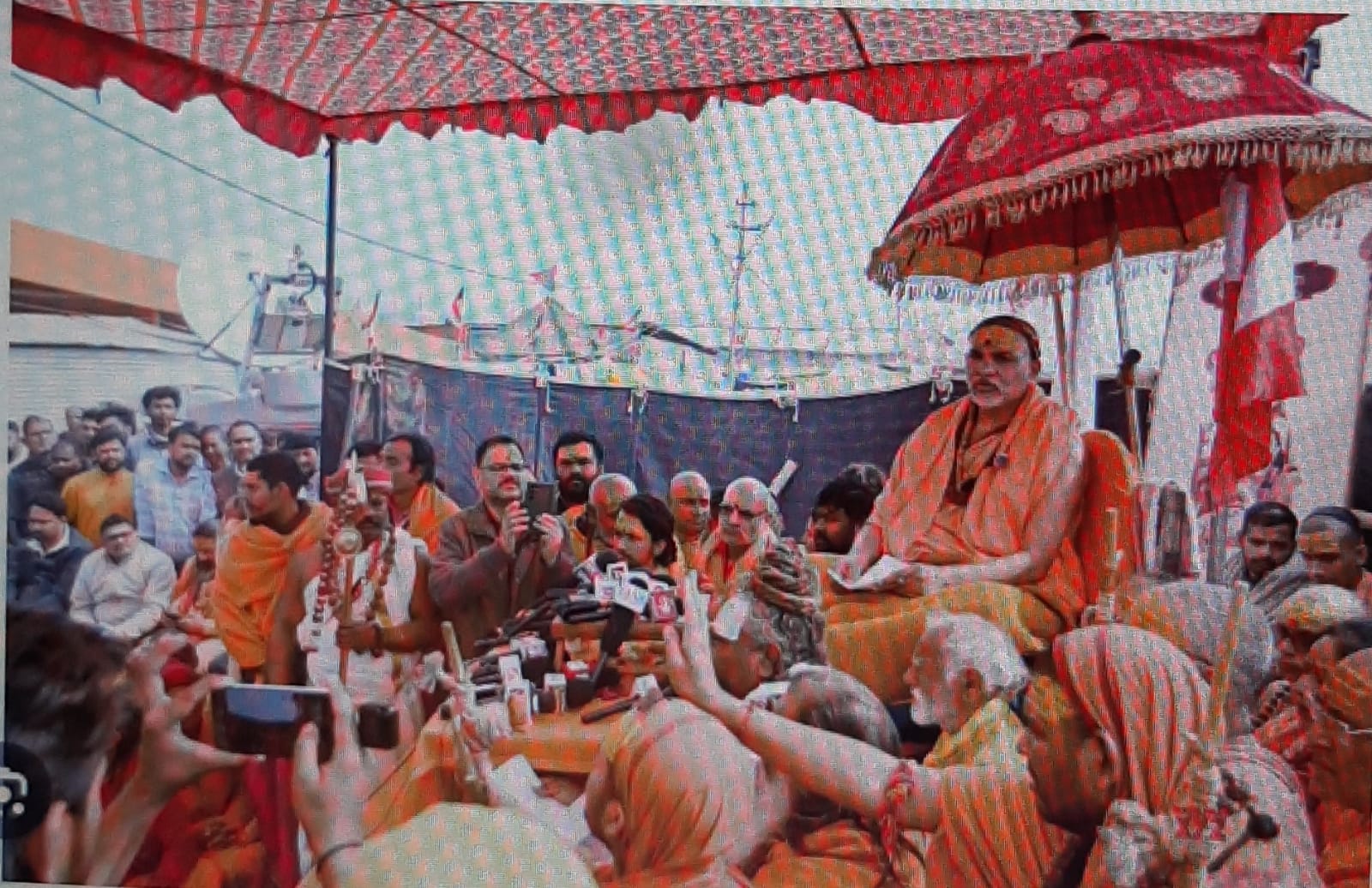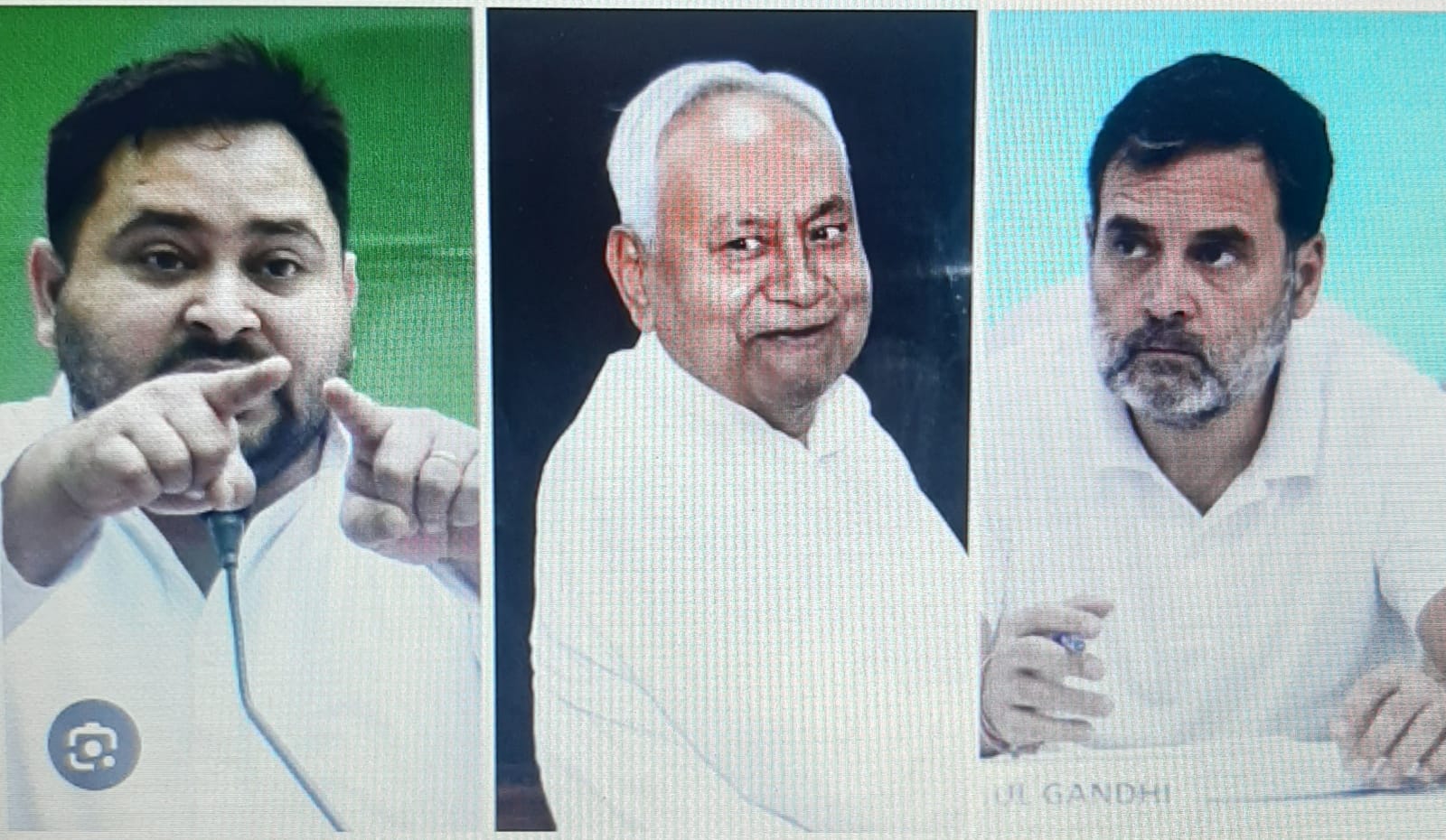
This is not the first time. There has been successive pattern in Bihar election to come out with lollipops at the time of elections. However, the malady is not just confined to Bihar. It is pan-India phenomenon. From Tamil Nadu to Andhra Pradesh, Maharashtra, Uttar Pradesh, West Bengal, Rajasthan, Telangana, Karnataka, Madhya Pradesh, there has been identical great Indian race to bank roll free schemes for electoral gains, writes M Hasan
Lucknow, October 12: Even as “electoral freebies” are galore in poll-bound Bihar the political parties of all hues seem to have launched “May I buy your vote” campaign to induce the electorate. Both NDA (JDU-BJP allies) and Mahagathbandhan (RJD-Congress allies) have joined hectic race to appease the poverty-stricken Bihar voters.
This is not the first time. There has been successive pattern in Bihar election to come out with lollipops at the time of elections. However, the malady is not just confined to Bihar. It is pan-India phenomenon. From Tamil Nadu to Andhra Pradesh, Maharashtra, Uttar Pradesh, West Bengal, Rajasthan, Telangana, Karnataka, Madhya Pradesh, there has been identical great Indian race to bank roll free schemes for electoral gains.
Both NDA and Mahagathbandhan have joined the race for free electoral promises. The Bihar Chief Minister Nitish Kumar, who is caught in tough poll battle has announced Rs 10,000 each to around 1.2 crore woman, RJD’s Tejashwi Yadav has countered with his promise cash dole out and one government job to every family. The NDA in Bihar appears to be following the successful Maharashtra and Madhya Pradesh playbook as it announced schemes targeted especially at women and youth. It has accelerated the announcement of schemes targeted at specific voter groups, like a promised unemployment allowance or for setting up small-scale industries. Nitish Kumar has also announced increase in pension amounts, free electricity, and unemployment allowances. Under some scheme cash has already been transferred.
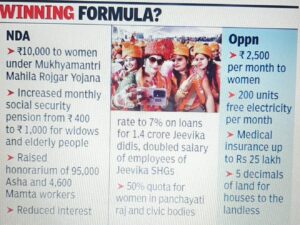
In order to counter ruling alliance the Mahagathbandhan has come out with a 10-point promise for the Extremely Backward Classes (EBCs), which included land for the landless, earmarking half of the reserved seats in private schools for SC/ST/OBC/EBCs, and quota in private institutions.
The BJP had successfully used the Ladli Behena Yojana in both Maharashtra and Madhya Pradesh ahead of elections. In Jharkhand, the I.N.D.I.A bloc also used the “Mukhyamantri Maiya Samman Yojana” to return to power.
There is no doubt that freebie distribution significantly strains public finances, with costs ranging from 0.1% to 2.7% of gross state domestic product (GSDP) across various states. Some states, like Andhra Pradesh and Punjab, have allocated over 10% of their revenue to subsidies. The promise of irrational freebies from public funds before elections unduly influences the voters, disturbs the level playing field and vitiates the purity of the poll process. It amounts to an unethical practice that is similar to giving bribes to the electorate. No doubt There is an impropriety in governments announcing such schemes with elections just in sight. It gives ruling parties an undue advantage. It is brazen, objectionable.
But such inducements might not always work, as it was visible with the Ashok Gehlot-led Congress in Rajasthan, the K Chandrashekar Rao-led BRS in Telangana, and the Y S Jagan Mohan Reddy’s YSR Congress in Andhra Pradesh. If the popular mood is against the ruling party no schemes can help.
According to a survey freebies played role in misallocating resources by diverting funds from productive sectors, hindering economic growth and essential infrastructure development. NITI Aayog had criticised subsidies like laptops in Uttar Pradesh for overshadowing urgent needs in education. The electoral practices have also fostered a culture of dependency, discouraging self-reliance and entrepreneurship, which are vital for sustainable economic growth. Moreover, it has diminished accountability in governance, as political parties have used freebies to distract from systemic issues and failures in public service delivery. According to survey freebies have also led to the overuse of natural resources, such as water and electricity, reducing incentives for conservation and increasing pollution. For example, free electricity for farmers in Punjab has resulted in resource overuse and decreased service quality from the power utility.
Recently, Supreme Court had questioned whether freebies are fostering a parasitic lifestyle among the poor and discouraging them of the will to find work. The apex court had also raised the question how can the government proudly claim that the poverty has almost been eradicated, yet offer free foodgrains to 80 crore “needy” citizens.
(M Hasan is former Chief of Bureau, Hindustan Times, Lucknow)




